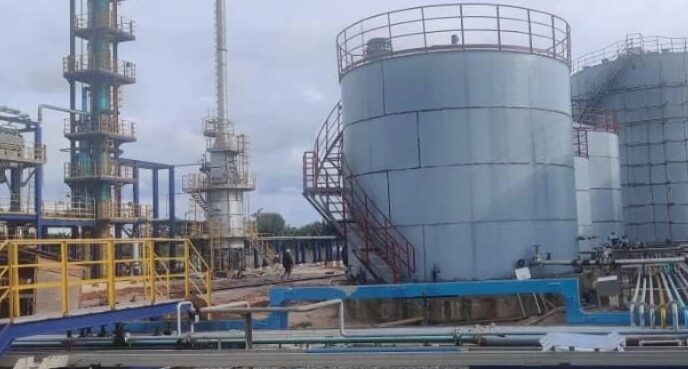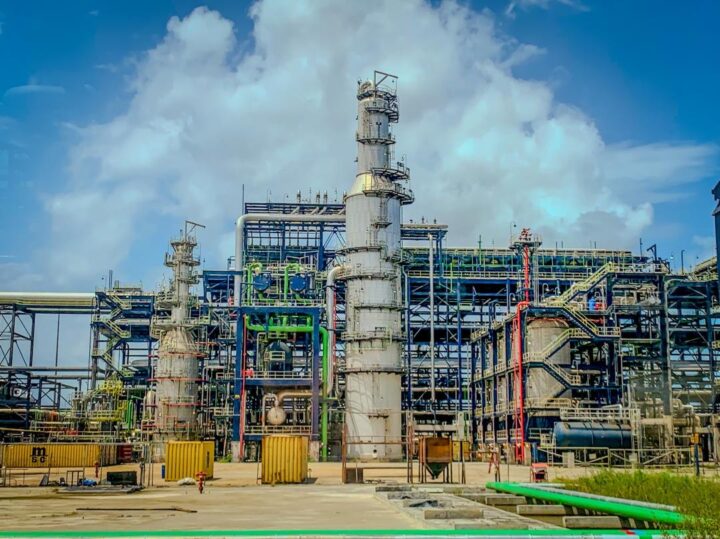Oil producers, under the aegis of the Independent Petroleum Producers Group (IPPG), have asked regulators to allow the sale of crude to the Dangote Petroleum Refinery and other local refineries to be based on a willing buyer, willing seller basis.
On August 12, the Nigerian Upstream Petroleum Regulatory Commission (NUPRC) unveiled crude oil producers’ production forecast for the second half (H2) of 2024, saying the producers would sell crude to local refineries.
Abdulrazak Isa, chairman of IPPG, in a letter dated August 16, and addressed to Gbenga Komolafe, chief executive officer, NUPRC, called on the Nigerian National Petroleum Company (NNPC) Limited to redirect its allocated crude oil volumes to Dangote refinery and other local refineries.
He said this is to mitigate the current crude supply shortage being experienced by the local refiners, which is impacting the availability of crude in many parts of Nigeria.
Advertisement
“Historically, NNPC has always had an intervention crude oil volume (445kbopd) meant to satisfy the nation’s domestic consumption. This volume has always been used, under various swap mechanisms, to import refined products for domestic consumption,” he said.
“Since there is now domestic refining capacity to meet consumption, this dedicated volume should be reserved for all domestic refineries under a price hedge mechanism that can be provided by a suitable financial institution such as Afreximbank.
“Any national production above this allocated volume should be treated strictly as export volumes, adhering to the willing buyer, willing seller framework of the international market especially since the refiners will need to export excess products that surpass domestic demand thus boosting FX earnings.’’
Advertisement
Isa said some IPPG members are already supplying crude oil to local refineries, expressing concerns about the domestic crude oil refining requirements and crude oil production forecast for the second half of 2024, announced by NUPRC.
He also faulted the request to producing companies for their monthly quotations for crude oil supply to licenced refineries in Nigeria.
The IPPG chairman said some of its members had received letters from the Dangote refinery regarding nominations for crude supply in October.
He criticised the approach, saying it went against the spirit of the willing-buyer, willing-seller framework stipulated in the Petroleum Industry Act and put them under obligation.
Advertisement
‘ENHANCING NIGERIA’S PETROLEUM VALUE CHAIN’
Isa emphasised the importance of enhancing the country’s petroleum value chain within legal and existing obligations, expressing confidence that there would be a mutually beneficial solution.
“While we fully support and commend the efforts of Nigerian entrepreneurs to enhance domestic refining capacity, it is important that no private sector business is unduly pressured into arrangements that may effectively subsidise another within the oil and gas value chain under any guise whatsoever,” he said.
“Under this willing-buyer, willing-seller framework, it is essential for refiners to negotiate and execute long-term crude oil Sales and Purchase Agreements with producers and their marketing agents. These agreements should follow industry best practices, with typical tenures ranging from one to five years.”
Advertisement
Isa said some individuals received allocation letters from NUPRC for crude oil supply in the second half of 2024, raising concerns about potential economic implications, particularly foreign exchange earnings through royalties and taxes.
“We understand that the current allocation methodology appears to be based on a matrix of production forecasts by producers, issued technical allowable rates as well as crude oil requirements of domestic refineries, rather than actual local consumption needs,” he said.
Advertisement
“This raises significant concerns as it suggests that allocations are being determined based on the demands of refiners, which may exceed what is needed for domestic consumption.
“Such an approach could lead to inefficiencies and unfairly disadvantage producers. Therefore, it is crucial that refineries with excess capacity beyond local consumption do not exploit the Domestic Crude Oil Supply Obligations to the detriment of oil producers and other stakeholders, including the Government.’’
Advertisement
Isa called for transparency in how the allocations to oil producers were determined and requested NUPRC to provide clear details on the allocation criteria and methodology.
Advertisement
Add a comment








